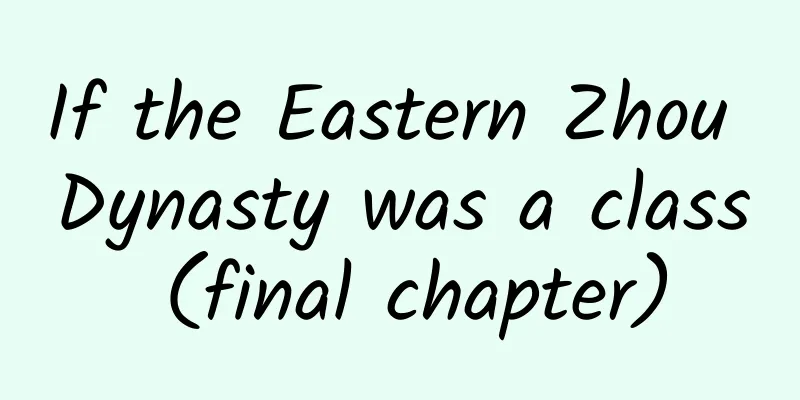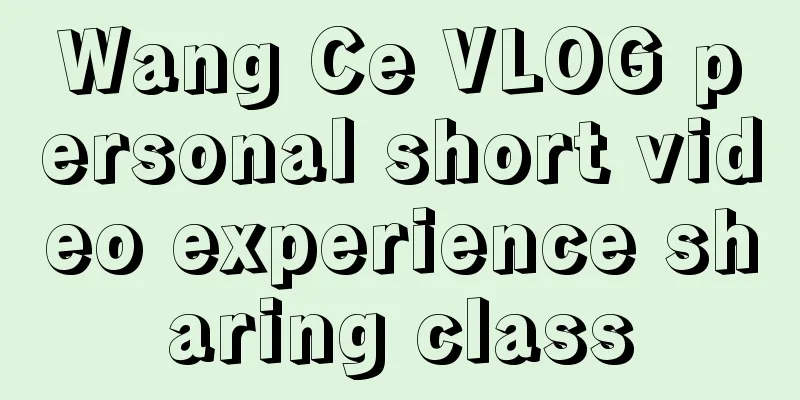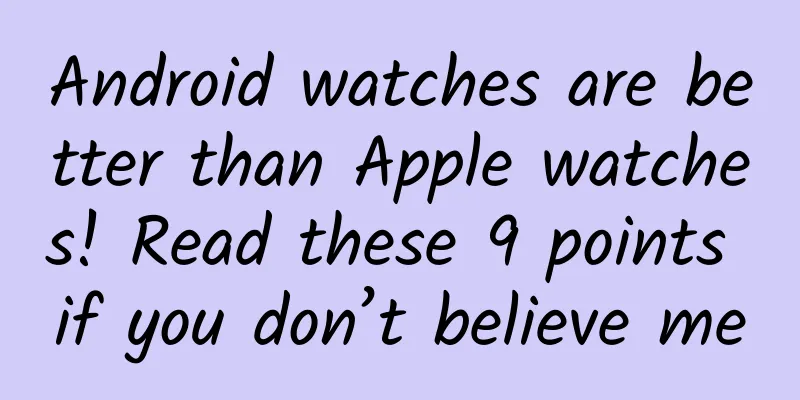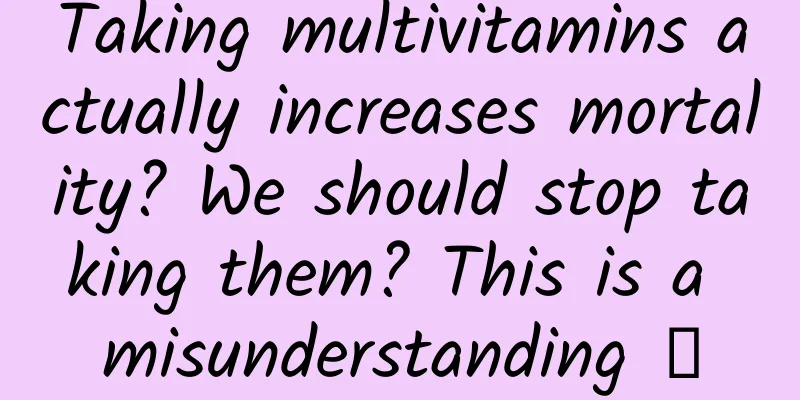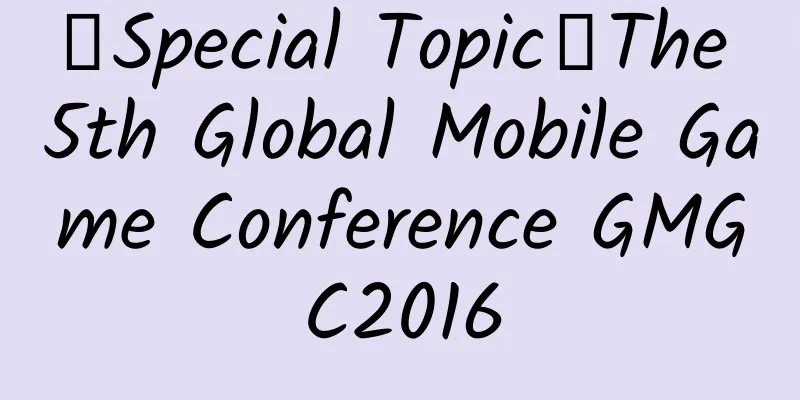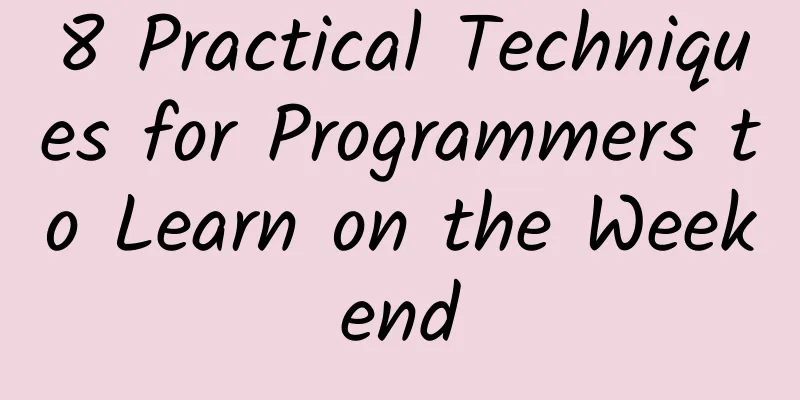In 2022, both liberal arts and science majors will have to escape from the palm of their hands | New Year's Day Special
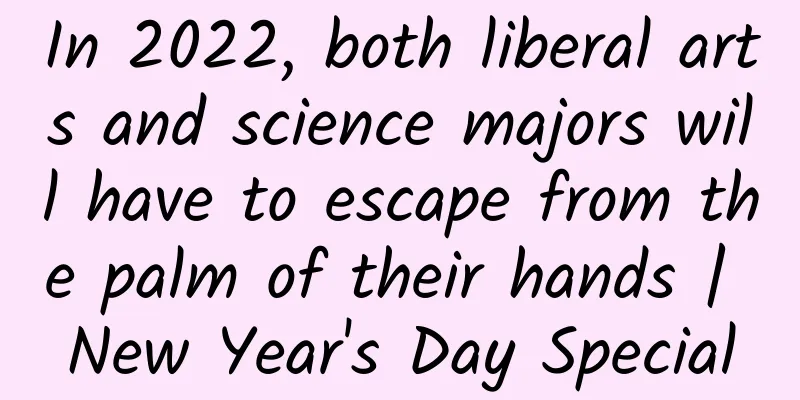
|
Although the New Year is just a time scale artificially made by humans according to the laws of nature, the significance of celebrating the New Year lies in that people will inevitably place some transcendental hopes on the future at this moment. For intellectuals, those wishes based on their own situations must have been made many times. Today, it is better to borrow the thoughts of the late writer and computer expert Wang Xiaobo to start the new year: thinking is the real future of mankind. There should be a common standard for evaluating science and art, that is, not based on the gains and losses of the present world. The eternal responsibility of intellectuals is to face the future and achieve success. Written by Wang Xiaobo I recently read C. P. Snow's "The Two Cultures". The things discussed in this book are not new. For example, Mr. Snow divided intellectuals into two categories: scientific intellectuals and literary (humanistic) intellectuals, and said that there are two kinds of culture, one is scientific culture and the other is literary (humanistic) culture. Every intellectual today must have his career in one of them. What I want to talk about is actually only slightly related to Mr. Snow's book, that is, I think that the combination of the two cultures is the future of mankind. This is not quite accurate. In fact, it is the activities that created these two cultures - human thinking, that are the real future of mankind. Ms. Yourcenar said through Adrian that when a person writes or calculates, he transcends gender and even transcends humanity - when you write and calculate, you are thinking. Thinking is the future of mankind, so people who think transcend the current human beings. This sentence is very well said, but it is too simple. In fact, not every kind of writing or calculation can transcend humanity. This situation is rare, but it is very important. Yourcenar, whose real name is Marguerite de Crayencour, is a French poet, novelist, playwright and translator. Now I think of another thing, which seems to be far from the topic at first glance: In the 1980s, the United States passed a plan to allocate tens of billions of dollars to conquer cancer in the shortest possible time. The results were not satisfactory, and some people even said that the plan was a laughing stock because so much money was spent but no special treatment was found. This incident shows that even if there is endless money, it is not necessarily possible to make a breakthrough discovery. In fact, any genius discovery in human history is not the direct result of money. Money and power are the most important things in the world and are one side of human life, but there is another side. When talking about genius discoveries, we have to talk about genius, inspiration, sudden inspiration, and so on. We will never say that they are the result of some people who have money, get promoted, and are happy. What I want to say is: silent thinking is another side of human life. Take conquering cancer as an example. Scientists think about science and do science silently. One day, they will make a discovery and completely solve the problem. However, if you want to agree on a deadline, no matter how much money you give, you may not succeed. For modern science and technology, although funding and equipment are important, the idea of genius is still the main driving force. A discovery or invention can make a lot of money, but having money does not necessarily mean that the desired invention can be made. Thinking is a door that leads to things that do not exist in the world and to places that humans cannot think of now. Taking science as an example, this principle is very clear. Scientific intellectuals can easily see their work as a cause that transcends humanity, but humanities intellectuals find it difficult to think of this. Take literature and art as an example. Here we require it to be oriented towards society and life, and even require it to be beneficial to people in the present world, promote national culture, etc. This is getting smaller and smaller. It is true that literature and art, etc., should be appreciated by people in the present world, but it is not limited to this. Shakespeare's plays are still being performed now and will be performed in the future. If you start from the perspective of Britain when Shakespeare was alive, you would never imagine that such a thing would happen. Some of the achievements of natural sciences have been used by modern humans, but as far as I know, there are still many that have not been used. If you cancel all the unused ones, science will no longer be science. When I was in college, my mathematics professor once said in class: The mathematics I am teaching now may not be used by you in your lifetime, but I still want to teach it because this knowledge is good and you should know it. The teacher's broad mind made me admire him all my life. I also want to say that such a broad mind is rarely seen among Chinese humanities intellectuals. If I say that scientific intellectuals are more noble than humanities intellectuals, it is definitely wrong. There are also despicable people among scientific intellectuals, for example, Lysenko of the former Soviet Union. But I have never heard anyone say anything too harsh about his theory, let alone anyone who has made such a detailed analysis: a certain fallacy in Lysenko's theory is closely related to a certain part of his despicable heart. If Lysenko is not worthy of respect, the career that Lysenko is engaged in - biology - is still worthy of respect. In science, there are wrong theories, but no despicable theories; even the work done by despicable people like Lysenko for biology cannot be said to be despicable behavior. Such moral standards are obviously not applicable to the current art forum in China. If you don't believe it, just look at how others comment on Mr. Jia Pingwa's "Wasteland". Obviously, in China now, literature is not a cause that transcends the present world and humanity. The standards we use to comment on it are no different from those used by gossiping women to comment on trivial matters around them. Mr. Jia wrote a book called Wasted City, just like a certain sister-in-law went out wearing a cheongsam. We should not only say that the clothes are not pretty, but also think about her motives, whether she wants to seduce someone. In addition, when a gentleman or lady writes a good book, we must praise him for his contribution to the world and the people, just like praising a lady for taking care of her husband and children and being filial to her parents-in-law. Of course, if I say that China now has only such a standard for literature and art, it would be a malicious slander. Shortly after Duras's The Lover was published, four translations (including the Taiwanese translation) were published. The movie Schindler's List has not been seen in China yet, but it has received endless praise. We say that these will be handed down from generation to generation, so we will not judge them by the standards of the present world or morality. Such standards have never been used for Chinese people. From this, we can draw a conclusion that in the field of literature and art, foreigners can do things that transcend humanity, but Chinese people cannot. In the fields of literature, art and other humanities, Chinese people do use a double standard, that is, they use artistic or scientific standards to evaluate foreign works, and use moral standards to evaluate Chinese works. Behind this idea, foreigners are regarded as another species, so their achievements can be evaluated objectively; Chinese people are regarded as the same species, and only subjective evaluation can be made. Therefore, the most important content of our cultural undertakings is not its achievements, but its boundaries; these boundaries are recognized by everyone, and anyone who dares to cross the boundaries will be attacked by the crowd. Mencius commented on Yang Zhu and Mozi in this way: "Without a ruler and without a father, one is a beast." Now we comment on "Wasteland" and some movies that have won awards abroad in this way. Whether these works are good or not is another matter, but we cannot say that their work is "beastly" or "worshiping foreign things". As a Chinese, the greatest pain is to endure others "putting oneself in others' shoes" more times than people anywhere else in the world. What I want to say is not that I don't like being Chinese (this is my favorite thing), what I want to say is that this is very detrimental to the development of cultural undertakings. I think that when we seriously evaluate art, the standards we use are similar to those used in science, that is, they are not based on the gains and losses of the present world, but only on whether it is right or wrong (science) or beautiful or not (art). I call this standard the standard of wisdom. Suppose there is an intelligent creature other than humans, we certainly expect them to understand human achievements in art in addition to scientific achievements, so their wisdom is beyond humans. Some people think that it is impossible for something other than humans to appreciate human art. Then I dare to bet with you that when this creature reads Ms. Yourcenar's book, it will applaud a certain sentence and affirm the broad-mindedness of humans; as for whether it can appreciate "Dream of Red Mansions", I dare not bet. But I dare to assert that this standard exists. From this standard, humans are lucky to have wisdom, so they should use it well to achieve various undertakings, including literature and art. Using this standard to measure, a novelist's efforts to write an unprecedented book are just as praiseworthy as scientists' efforts to make discoveries. Of course, there are other standards, that is, never forgetting that you are a person, living in a certain alley, surrounded by gossipy women, and should live a life in accordance with the rules. If you have the ability to spare, you should make a fortune, become a high-ranking official, and let others say you are good. The latter standard is the basis of personal happiness, so it should not be forgotten, but as a modern intellectual, the former standard should also be remembered. When an intellectual faces cultural heritage, he will definitely feel that it is vast and majestic. These things are the accumulation of human wisdom for thousands of years, and of course they are worthy of respect. However, I think its source is more worthy of respect, that is, the wisdom possessed by living people. This thing is like a pool of living water, and all cultural heritage is its sediment. A small part of this living water can exist in your brain and mine. In my opinion, this is the most beautiful thing in the world. The wisdom preserved in cultural heritage makes people respect it, and the wisdom in the minds of living people makes people have infinite expectations. I like to see people achieve various achievements, especially I like to see the current Chinese achieve any kind of achievement. Wisdom always points to the realm of nothingness, from which knowledge and beauty are born; rather than focusing on the present, current events and current people. I think it is wrong to limit the scope of wisdom to a small circle, in other words, to a certain time, a certain place, a certain people, a certain cultural tradition; because if wisdom is to produce, produce or discover something that does not exist now, then the aforementioned boundaries should not exist. Unfortunately, China's most important cultural heritage is just such a boundary, like the palm of Tathagata Buddha, no one can jump out; and modern mainstream culture was born in the West. There is a traditional model for being an intellectual in China, which may be passed down by Confucius and Mencius, or Cheng and Zhu. That is, you should first be a person who follows the rules, set an example, and have fun, and then manage others. When I was young, from elementary school to middle school, there were such good classmates in my class, who listened to the lectures with their hands behind their backs, became the class monitor, and then managed others. It is still the same now. First, study hard, become a well-known theorist and critic, and then correct the world and people's hearts. Of course, this is the secret of being a person. Being an intellectual seems to be a little insufficient; in addition to correcting the world and people's hearts, you should do something else. From this model, a school-like atmosphere will naturally be generated. First, study and receive education. When you have accumulated a certain amount of knowledge, you can teach others and manage others. Such a school has been established for thousands of years, and the same knowledge has always circulated in it. It has not produced a culture that is oriented to the future and transcends humanity. If anyone wants to scold me for national nihilism, go ahead, anyway, I have not been a good student since I was a child. It has only produced an extremely heavy tradition, and countless smart talents have been wasted. When it comes to the ways of the world and human hearts, I admit that there is no better tradition than Chinese culture - so here we will always only have the ways of the world and human hearts, nothing else. In short, when it comes to the duties of intellectuals, I think there is another tradition to follow: that is, facing the future and achieving success. All great sages throughout the ages have done this. The two types of intellectuals can be divided like this: the former cultivates in one lifetime to become a Tathagata Buddha, so that others will never escape from his palm; the latter wants to be satisfied as long as they can escape from the palm of others in one lifetime. What I want to say is that I hope everyone will be the latter type of intellectual, because no matter whose palm it is, it is too small. This article is excerpted from Wang Xiaobo's "The Silent Majority", published by New Classic Culture/Beijing October Literature and Art Publishing House, published in 2017-4 Source: Fanpu |
<<: Smart eating in winter - are the nuts you eat carbohydrates or fats?
>>: The December "Science" Rumor List is here! Can strawberries spread hemorrhagic fever?
Recommend
Some plants are valuable from head to toe, but taro is poisonous from head to toe...
In China, crops that can be named with just one w...
Beiyu Reading and Writing Workshop Zhang Xingdong's Writing Class
Beiyu Reading and Writing Workshop Zhang Xingdong...
What is Wancibaping? Is it reliable to dominate the screen with 10,000 words? How to rank up
Whether Wancibaping is reliable or not does not l...
Today’s Toutiao’s WeToutiao traffic generation strategy!
Many people may not know that it was not Edison w...
Testin AppBase: New applications continue to emerge, with Touchpoint WiFi leading the way
In the past few years, the rapid growth of mobile...
Why isn’t your Tik Tok recommended? A guide to avoiding pitfalls on Tik Tok!
Three quarters of 2018 have passed in the blink o...
China Automobile Dealers Association: China's auto dealer inventory warning index is 54.7% in August 2022
On August 31, 2022, the latest issue of "Chi...
Not knowing what happiness is, should we learn from people with "delusional disorder"?
Leviathan Press: If Harry in the article really f...
When you drink tea bags, drip coffee, or chew gum, you are probably also eating plastic.
Do you know how much plastic there is in our live...
2021 Tik Tok Hot-selling Live Broadcast Room Creation Plan Course
2021 Tik Tok Hot-selling Live Broadcast Room Crea...
Daily snacking, even small amounts, can reshape your brain
Friends often ask me, if I only eat a little swee...
[Practical Tips] Six major application markets teach you how to run the Android market!
Some optimization techniques for the domestic And...
A Brief Analysis of Mobile APP Security and Compliance Testing Technology
1. Regulatory agencies and policies To ensure tha...
Can customization help home appliance companies break out of the cold winter?
Under the background of macroeconomic recession, ...
"Black Book of Plans" is officially launched丨It makes it easy to write plans
If you have ever encountered such a problem when ...
